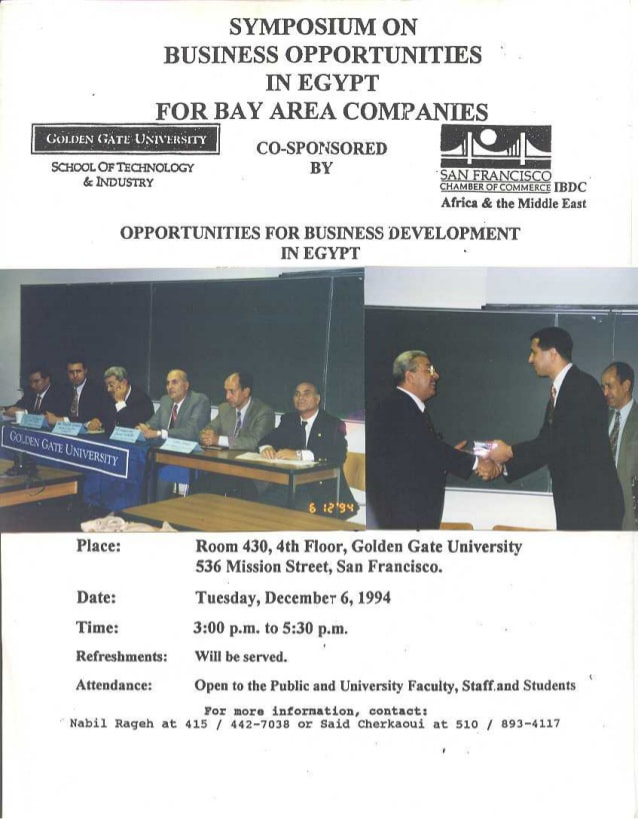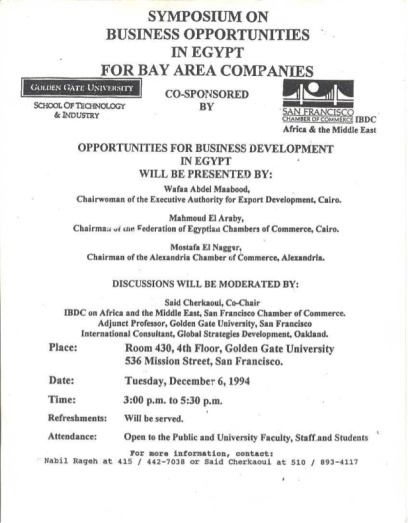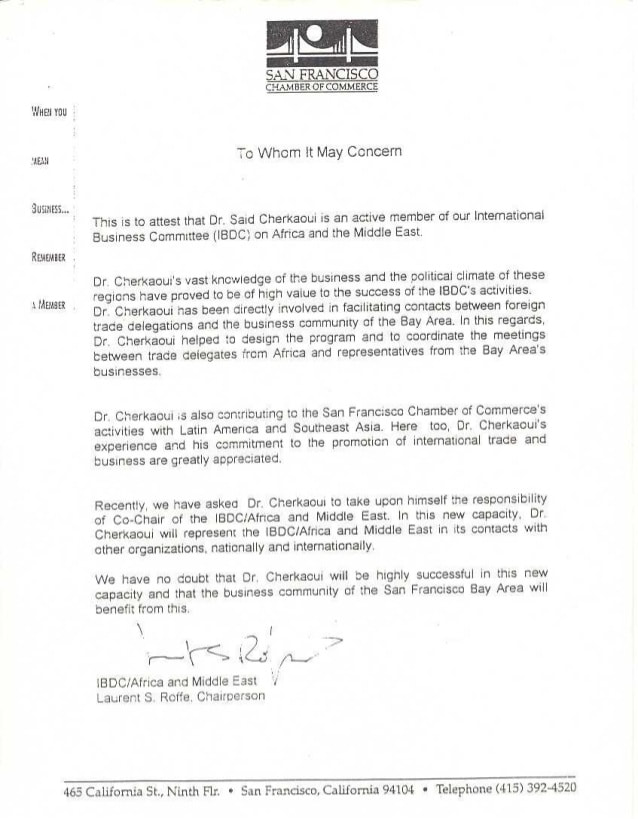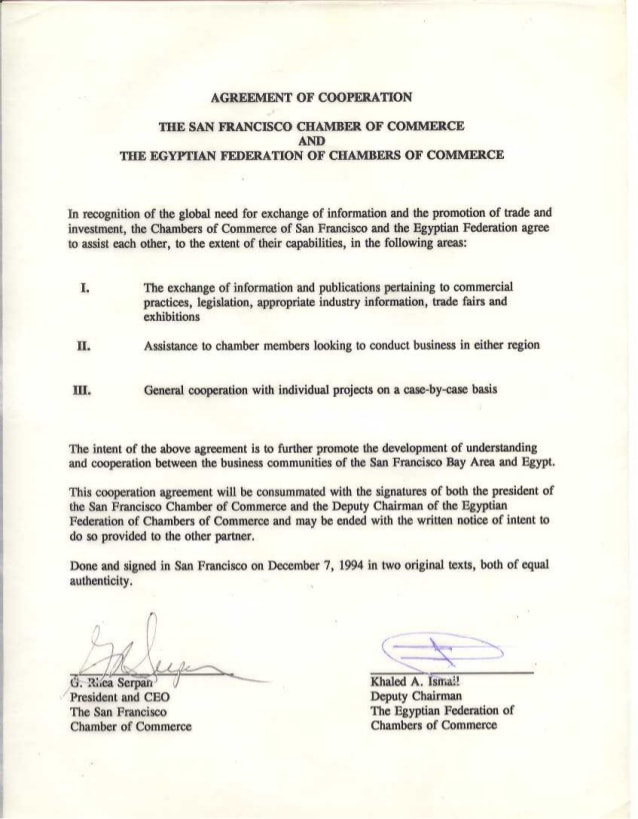Bilateral Economic Relations
Total bilateral trade in goods between the United States and Egypt stood at $9.1 billion in 2021, the highest level ever. Egypt is the United States’ largest export market in Africa.
U.S. exports to Egypt include wheat and corn, mineral fuel and oil, machinery, aircraft, and iron and steel products.
U.S. imports from Egypt include apparel, natural gas and oil, fertilizers, textiles, and agricultural products. Under the Qualifying Industrial Zone agreement, the United States waives duties on imports from Egypt if the value includes 10.5% Israeli content; this program promotes stronger ties between the region’s peace partners.
In 2022, the U.S. had a goods trade surplus of $3.6 billion with Egypt, a 40.2 percent increase from 2021. U.S. goods imports from Egypt totaled $2.8 billion, down 15.3 percent from 2021. Egyptian exports to the U.S. were $3.2 billion, an increase of 35.5 percent from 2020.
U.S. exports to Egypt include: Agricultural goods, Transportation equipment, Chemicals, Machinery, Computer and electronic products.

Egypt’s top imports include: Refined petroleum, Wheat, Cars, Crude petroleum, Corn.
Egypt imports mostly from: China, Saudi Arabia, the United States, Russia, and Turkey.
Egypt’s top exports include:
- Oil & mineral fuels
- Plastics
- Electrical machinery
- Iron & steel
Egypt and the United States signed a Bilateral Investment Treaty in 1986 to promote and facilitate investment between our countries. Egypt and the United States have signed a trade and investment framework agreement, a step toward creating freer trade and increasing investment flows.
American firms are active in most sectors of the Egyptian economy, including oil and gas exploration and production, renewable energy technologies, financial services, manufacturing, construction, telecommunications and information technology, and the restaurant and hospitality industry.
Flows of U.S. direct investment to Egypt stood at $1.5 billion in 2020, bringing the accumulated long-term stock of U.S. FDI to nearly $24 billion.
Egypt is positioning itself as a regional energy hub, rapidly boosting renewable energy production, further offering potential opportunities for U.S. firms.
In November 2022, Egypt will host the United Nations Conference of the Parties (COP-27) climate change conference in Sharm el-Sheikh.
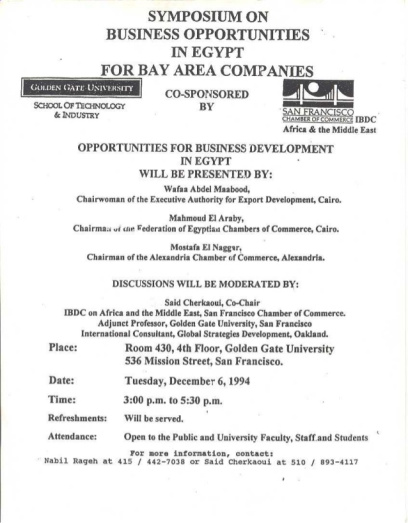
Hottest Products to Import From Egypt in 2023
Below are the hottest products to export from Egypt, with large growth potential:
- Cotton (forecast to rise by 7% 2023-2024)
- Jewelry (up 46% to $1.529 billion in 2022, compared to 2021)
- Plastics (US$2.61 Billion during 2022)
- Fruits (US$539.86 Million during 2022,)
- Ceramics (US$329.96 Million in 2022, a massive 112% increase from 2021)
- Essential Oils, Perfumes and Cosmetics (US$620.99 Million in 2022)
A slew of positive export data has been released for 2021, showing huge demand for Egyptian products worldwide. An Egyptian-British trade agreement signed following Brexit has been significant for both countries so there are some excellent opportunities for a foreign importer.
Cotton Products
Egypt is famous for its highest quality cotton around the world. Turkey and India import cotton from Egypt to produce high-quality products made of 100% Egyptian Cotton for the worldwide demand.
Fabric production includes fine Egyptian cotton fabrics, shirting, fabrics for trousers/shorts, worsted wool fabrics, denim, fleece, jersey, flat/woolen knits, technical fabrics, and more. Apparel production includes active sportswear, outerwear, underwear, suits, socks, infant wear, etc. Production of made-ups includes a wide variety of bed, bath, and table linens, kitchen accessories, etc.
Perhaps one of the most in-demand products are luxury 100% Egyptian cotton bed sheets and bedware.
Egypt’s cotton industry is forecast to rise by 7% for the year beginning August 2023 to July 2024, the U.S. Agriculture Department said late Monday.
Egyptian Jewelry
Egypts jewelry market is exploding and the potential for excellent returns on investment for those willing to source good suppliers and export to buyers around the world are excellent.
There’s plenty of room in the UK market still and well worth exploring.
Egypt’s exports of gold, jewelry, and precious stones increased by 46% during the period from January to November 2022, to reach $1.529 billion, compared to $1.044 billion during the same period in 2021.
Plastics
Since the revolution in 2011 many sectors, especially tourism, have slowed down, however, this has not been the case with the plastics industry, which includes finished products.
Egypt’s Exports of plastics were US$2.61 Billion in 2022, according to the United Nations COMTRADE database on international trade. The plasticware industry has become an important part of Egypt’s local manufacturing over the past ten years as a result of relying on plastic materials instead of other items like glass and metals.
Fruits
Food imports to Europe are a golden opportunity for Egyptian food imports and remain one of the most stable markets offering the highest prices.
Egypt’s exports of vegetable, fruit, and nut food preparations were US$539.86 Million in 2022,
Europe needs products that are low in sugar and packaging for European standards should be considered. Europe is more interested in buying food products which are in glass containers and tetra packs.
It’s important to understand import requirements with food and fresh fruits as of course there will be a limited shelf life.
Ceramics
Egypt intends to turn itself into a regional hub for manufacturing and exporting ceramics, in light of the availability of energy sources, raw materials, and qualified labor.
Egypt’s Exports of ceramic products were US$329.96 Million during 2022 up from $92 million in 2021, a massive 112% increase.
Egypt has a rich history of manufacturing ceramics and it’s expected for this industry to grow significantly.
Essential Oils, Perfumes and Cosmetics
80% of the world’s natural jasmine products, come from Egypt, where specialists in this ancient art extract the aromatic oils from a profusion of flowers, leaves, roots, and herbs and export them to perfumers in Paris, London, New York, and even Moscow.
Perfumes are a huge export market still to be tapped and the use of essential oils is becoming a very, very popular natural alternative to traditional perfumes.
Egypt’s exports of essential oils, perfumes, cosmetics, and toiletries were US$620.99 Million in 2022, and is still a young market for anyone wanting to take advantage of what is sure to be lucrative with the right suppliers and buyer markets.
Egyptian Exports Reach Their Highest Level Ever in 2022
Egypt’s total exports surged 18.3% year-on-year (YoY) during 2022, with exports jumping to $51.6 billion in 2022, compared to $43.6 billion in 2021.
Last year’s figure marks the highest value ever in the history of Egyptian merchandise exports.
Turkey topped the list of countries importing Egyptian products with a value of $4 billion, followed by Spain with $3.7 billion, Italy with $3.4 billion, and Saudi Arabia with $2.5 billion.
Exports to the US reached $2.446 billion compared to $1.618 billion, yet another significant increase of 51%.
Egypt’s exports to the UK increased 46.2% year-on-year, taking advantage of the Egyptian-British trade agreement, signed by the two countries following Brexit.
Last Updated On: 03/05/2023)
